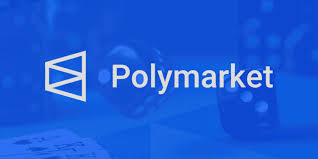Polymarket, a prediction marketplace where users can bet on real-world events, has partnered with AI-powered search engine Perplexity to offer news summaries of these events.
When users click on an event on Polymarket, they will now be presented with a summary of related news generated from Perplexity’s search results. Additionally, a search box is available for users to ask further questions.
Polymarket is also using Perplexity’s Pages feature, which allows users to create shareable pages from search results, to create a column that will be displayed on Perplexity’s Discover page. Perplexity has expressed interest in exploring more third-party partnerships to feature content in its Discover section.
Perplexity will utilize data from Polymarket, such as election trends, to create visual representations in the answers. These visuals will be generated using another AI platform called Tako.
“Polymarket has become a destination for people seeking high-quality, reliable information in an increasingly noisy web environment. We view Perplexity as a company with a similar mission, so deepening our partnership is a natural fit,” said Shayne Coplan, founder and CEO of Polymarket.
This collaboration follows a previous partnership where Substack allowed writers to embed prediction data from Polymarket into their posts. Additionally, Polymarket recently launched its own Substack newsletter named Oracle.
For Perplexity, Polymarket will serve as an API customer, generating revenue from API calls made by users who are viewing events and asking questions on the prediction marketplace.
Dmitry Shevelenko, chief business officer at Perplexity, mentioned that while the company primarily targets consumers and knowledge workers in enterprise settings, more developers are utilizing the Perplexity API.
“The API business is not our primary focus as we are a consumer-centric company. However, API usage is growing, with over 25,000 developers using our API. Our unique offering pulls in answers from various internet sources,” Shevelenko stated.
He added that the API is viewed as a means to grow the brand rather than an end in itself. Apart from enterprises, publishers are using Perplexity’s API to enable users to search articles on their platforms. Other applications include banks conducting Know Your Customer (KYC) processes, marketing tools, and financial services seeking up-to-date information.
Perplexity has faced criticism from news outlets for plagiarizing content and ignoring “robots.txt” instructions on websites. The company has since pledged to prominently display citations and has partnered with media outlets through an ad revenue-sharing program.
Shevelenko did not disclose specific numbers regarding how many people click on the sources displayed alongside Perplexity’s search results but mentioned that the figure is in the “double-digit percentage.”
Backed by NEA, IVP, Sequoia, and Jeff Bezos, Perplexity last raised $63 million at a $1 billion valuation in March. A month later, it was reported that the startup was seeking to raise $250 million at a valuation between $2.5 billion and $3 billion.

